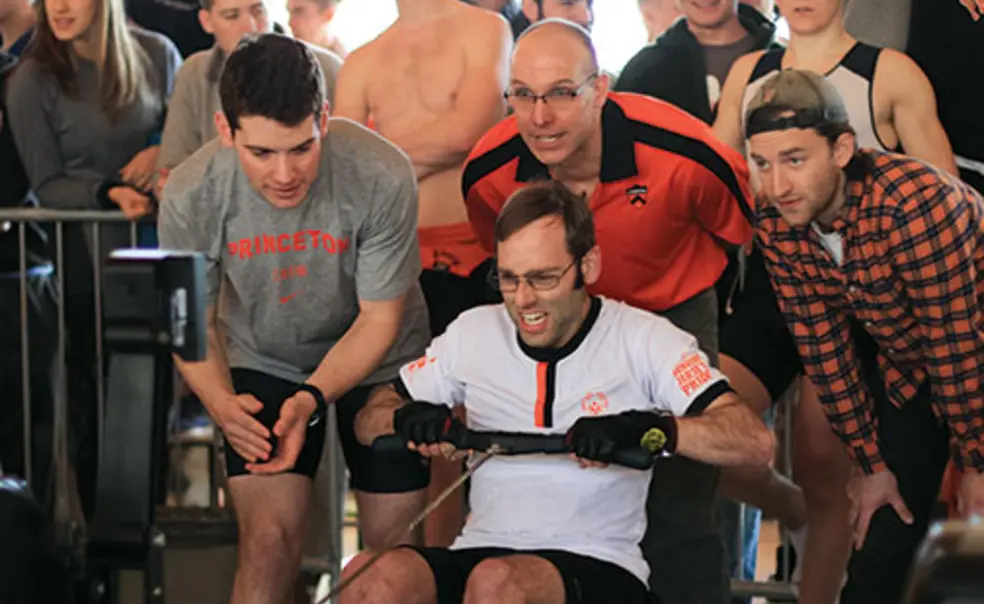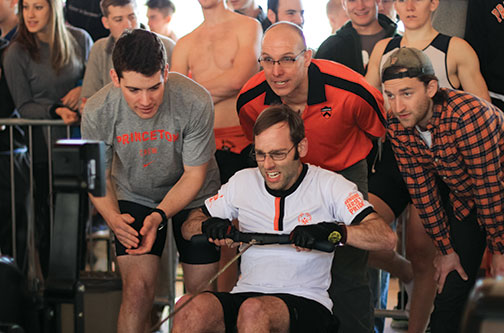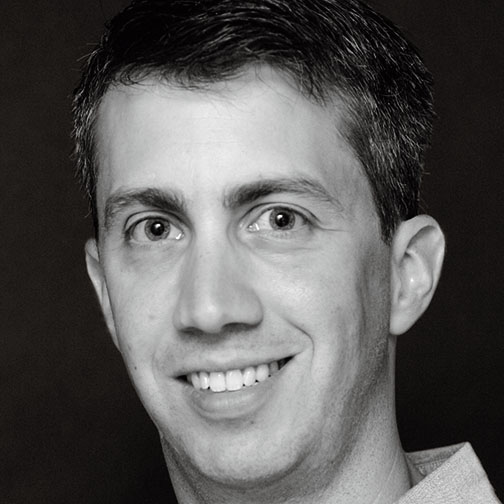Extra Point: Sharing Skills, Rowers Add New Athletes to the Boathouse Community
There are no boats and no water at the Crash P, the rowing program’s annual ergometer regatta. Inside Shea Rowing Center, scores of athletes test themselves against the clock on a long line of rowing machines. But with more than 200 cheering fans and team members perched just behind the action, the event provides an intense, race-like atmosphere.
This March, the field included a fresh group of rowers: 20 children and young adults with intellectual disabilities who participated in a series of Special Olympics clinics led by Princeton coaches and students. Coach Greg Hughes ’96 had a hint of hesitation when he introduced his new crew, wondering if the crowd might be intimidating, but he soon saw there was no reason to worry: “They totally ate it up. There was no fear or anxiety in any of those kids — they’re real competitors. It was awesome to see.”
Since November, the Special Olympics athletes had been training each Sunday, a rest day for the Tiger crews. David Mackasey ’14, whose mother is a special-education teacher in his native Montreal, was among the regular volunteers. A member of the varsity heavyweight crew, he said he enjoyed the chance to switch roles and be a coach for an hour or two each week. Teaching technique required time and patience, but before long, the newcomers picked up the basics and began measuring their progress, shaving seconds from their erg times.
“When you’re a coach and you’re working with someone and you see that flash go off, it’s a really rewarding experience,” Hughes said. “I think for our athletes, that’s what they saw — they saw these kids get the bug.”
The Crash P ushered in the spring season and marked the end of the Special Olympics rowing program, for now. But Princeton will play a prominent role in the Special Olympics National Games, coming to New Jersey in June, as host of the swimming and track and field events. (Rowing is not part of the National Games.)
Mackasey hopes to see his teammates continue the rowing clinics next fall. With a state-of-the-art training facility, its own body of water, and a tight-knit community of 170 student-athletes and 12 coaches, the Princeton rowing program has much to offer.
“We’re definitely lucky as a team,” Mackasey said. “It’s nice when we have an opportunity to share that with people.”














No responses yet